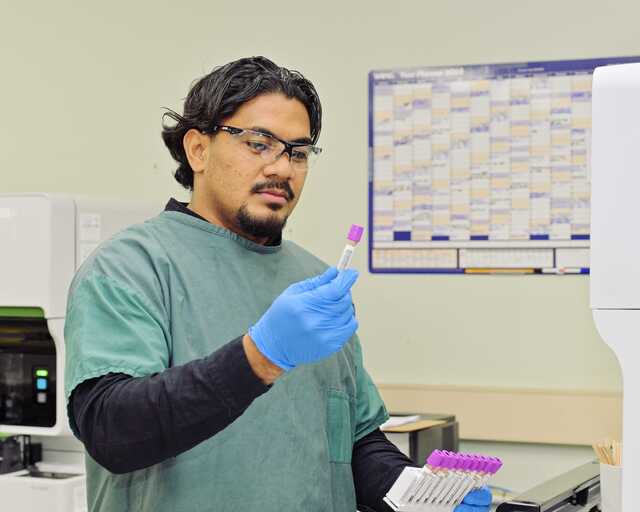
Geelong scientists are helping the Kingdom of Tonga address the country’s gap in its healthcare through a pathology training program.
Two Tonga pathologists-in-training will complete a 12-week lab placement in Geelong as part of a four-year program to understand more about pathology, which tests bodily fluids and tissues to diagnose and monitor conditions.
Dr Patrick Penitani started his placement on April 4 and said he had learned much from the lab scientists.
“I’m getting exposed to tests and things that are not being done in Tonga, and I’m hoping that these things will stick with me,” he said.
“Every day, you learn almost new things, and although it’s a challenge for me to keep up with these advances and new analysis and machines, it’s a good learning experience.
“Hopefully I can take these practises at home and implement them into our health system helping out with creating better health quality care in Tonga.”
Dr Saane Fonohema finished her lab placement on March 21 and said Tonga did not have a permanent pathologist in the past.
“It has been fascinating to see how fast the turnaround times are for tests in the Australian lab compared to what we’re doing back at home in Tonga,” she said.
“Reporting on and diagnosing a case (in Tonga) could take weeks. This impacts the treatment of the patient, and in the future, I hope to change this with my pathology training.”
Pathology Awareness Australia ambassador and honorary pathologist to the Kingdom of Tonga, Dr David Clift, said the training was necessary as Tonga has high rates of chronic diseases like diabetes.
“I have reasonably high hopes that the program we’ve embarked upon to provide Tonga with two qualified practising pathologists within the next four years will be successful,” he said.
“The idea is to train them, have them appropriately qualified, and have them trained to know how to train their successors so that it’s a self-sustaining model.
“Tonga hasn’t been able to develop preventive strategies like we have here… Cancer of the neck or the womb in Victoria is vanishingly rare but is unfortunately all too common in Tonga.”






